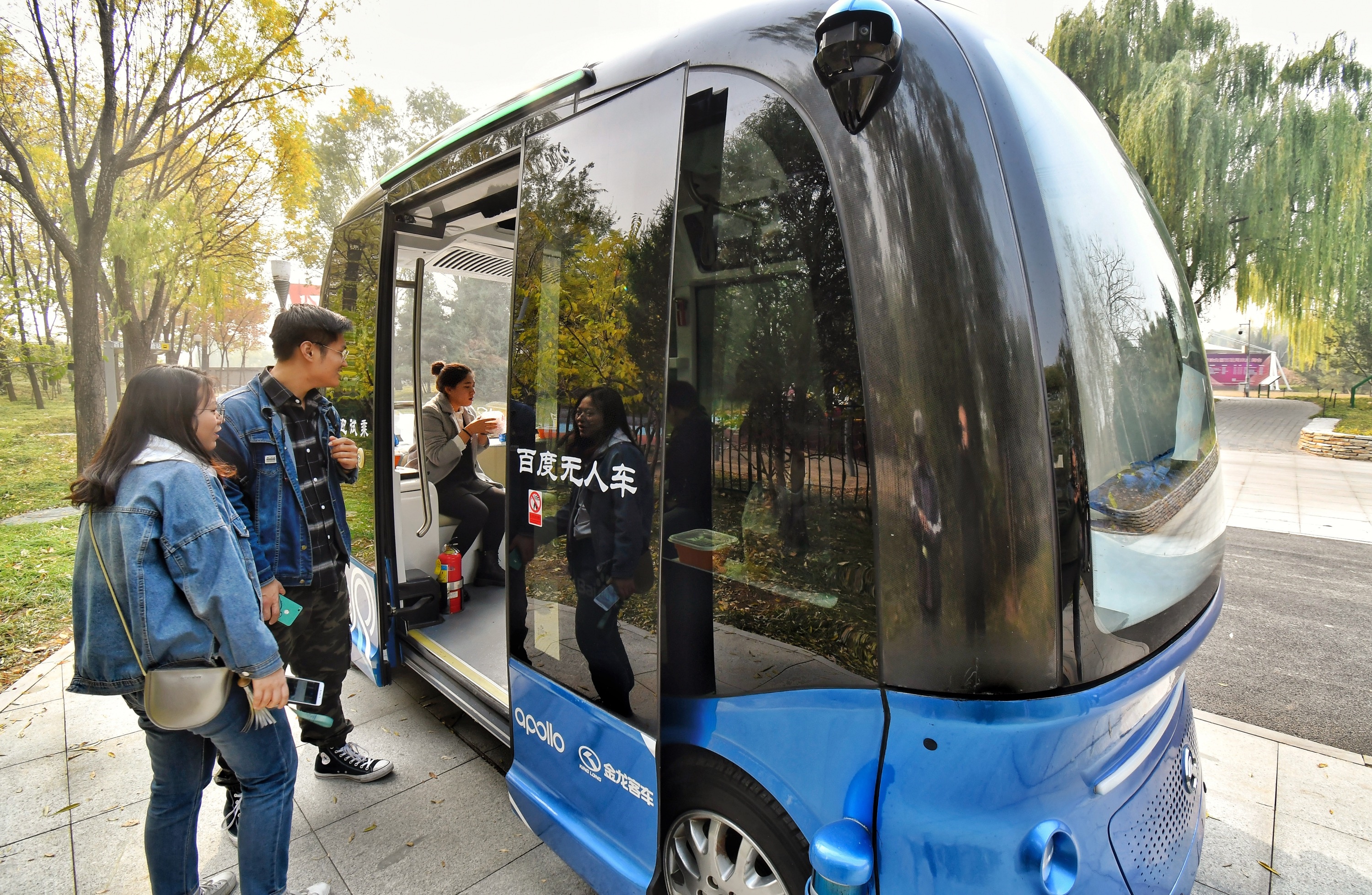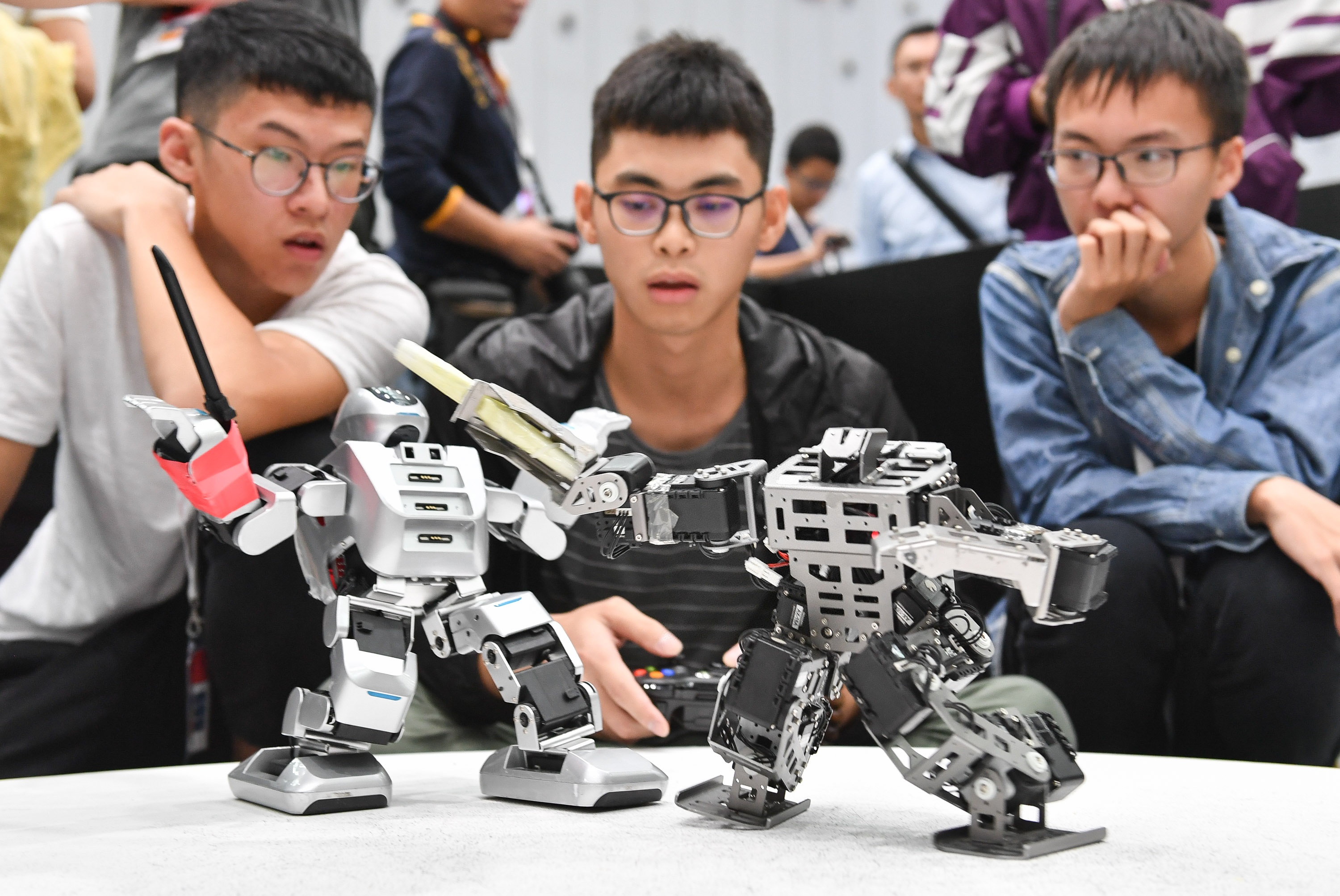China must prepare for the 'intelligent' future
- By Eugene Clark
 0 Comment(s)
0 Comment(s) Print
Print E-mail China.org.cn, March 6, 2019
E-mail China.org.cn, March 6, 2019

The second session of the 13th National People's Congress (NPC) stressed the importance of China's rapidly expanding AI industry and its many implications for China's future. It was recognized that China has an imperative to put into place the legislative framework and incentives that will ensure rapid, effective and responsible development of this new and exciting technology. At the same time, it has also noted that AI will present challenges in terms of creating socially responsible applications. Issues related to data security and privacy are at the forefront of these concerns.
Competition in the AI field has been intense at both global and domestic levels. While China has done well in attracting foreign investments, most Chinese AI players have also received funding from national e-commerce powerhouses, such as Alibaba, Tencent, Didi and Toutiao.
Most commentators agree that AI will impact every industry, thus ushering in major changes in every sphere of activity. For example, China's Ministry of Industry and Information Technology (MIIT) has identified 17 key priority areas that have received substantial support from the government in order to ensure China remains one of the world's leading AI players. The 17 areas of AI development point to the reality that the impact of AI in society will be profound and widespread, impacting almost everything. Devices and applications using voice and/or visual recognition, language translation, facial recognition, email and data filters and machine learning are found in just about every sector, including military systems, the medical field, security (fraud prevention and detection), autonomous vehicles and the Internet-of-Things. In the vital area of e-commerce, AI has the potential, among other things, to convert China's global mass supply chains into personalized distribution channels.
Education has also played a major role in AI, most notably in universities engaged in basic research in the field, but also in industry/university partnerships. It is impressive that China ranks first among all nations in the filing of patents related to AI and also leads in the number of AI research publications and highly cited AI papers. Further augmenting China's push to develop AI talent was a plan launched by the Ministry of Education (MOE) in April 2018, "AI Innovation Action Plan for Colleges and Universities." This plan will create "50 world-class teaching materials for undergraduate and graduate studies" related to AI applications for specific industries. It also plans to deliver "50 national-level high-quality online open courses" and finance "50 artificial intelligence faculties, research institutions, or interdisciplinary research centers." The MOE also lays out plans to launch a training program to create more AI instructors and attract thousands of additional students to the field.

What will be the future impact of AI on education and workforce requirements? Much of today's education is still fixed on the needs of an Industrial Age and focused on skills that are increasingly being taken over by machines. Accordingly, there is an urgent and ongoing need to consider educational reforms that place greater emphasis on those uniquely human skills – creativity, empathy, problem solving and other soft skills that robots and AI applications are less likely to be able to do. We also need a better understanding of how best to combine human and machine learning in order to reap the maximum benefits of this new technology while minimizing its potential harms.
It must be noted, however, that international competition is intense – as seen, for example, in the Feb. 21 announcement from the U.K. that thousands of graduates are to become qualified experts in artificial intelligence through a joint government-industry package to ramp up skills in the sector. Britain will thus have a nationwide program of industry-funded AI master's courses and 16 university research centers to train the next generation of PhD students to carry out AI research.
As China looks to the future, it has no choice but to meet these challenges head-on; if it does so, it will be able to serve as a model of responsible, advanced development in the increasingly central field of artificial intelligence.
Eugene Clark is a columnist with China.org.cn. For more information please visit:
http://www.ccgp-fushun.com/opinion/eugeneclark.htm
Opinion articles reflect the views of their authors only, not necessarily those of China.org.cn.
If you would like to contribute and have specific expertise, please contact us at opinion@china.org.cn.





